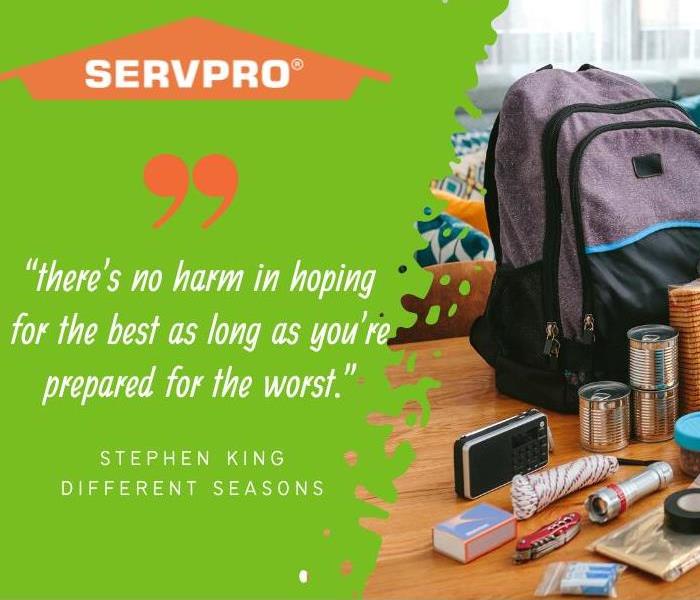Emergency Kits
10/16/2022 (Permalink)
Part of being prepared is having an Emergency Plan and part of that plan is an Emergency Kit.
Two years ago we experienced an unexpected winter storm and many people weren't prepared for the power outages and retail closures that came with "Snowmageddon." A properly packed Emergency kit could have helped make things more bearable.
The Red Cross recommends that an emergency kit have enough supplies for at least 72 hours and should include the following:
- Water (at least one gallon per person, per day,) This is especially helpful if your house sustains flood damage and you have to turn the water off.
- Non-perishable snacks such as peanut butter, beef jerky, granola bars or fruit.
- A manual can opener.
- A cell phone battery that can charge your phones.
- Matches and/or firewood if you have a wood-burning stove.
- At least 1 powerful flashlight - but ideally 1 per person in the home.
- A sleeping bag for each person in the house.
- Extra supplies such as toilet paper, baby wipes, garbage bags, and twist ties.
- Make sure you have enough medication for several days if a storm is in the forecast. It's also a good idea to have pain relievers and stomach aids in the house.
- Books and board games to help keep kids occupied if stuck at home.
- If it's a winter storm - hand warmers can be helpful if the heater goes out.
While not necessary for survival, these things could also come in handy in the aftermath of a big storm:
- A camping stove for cooking
- Wrench or pliers to turn off utilities and a multi-tool (such as a Leatherman)
- A list of emergency numbers, including family contacts (keep in mind your cell phone might run out of batteries or be damaged during an emergency)
- A gas powered generator.
- An emergency medical book if medical help is unavailable or delayed. One good option is “The Survival Medicine Handbook.”
Preparing for emergencies can be scary, but knowing you’ll be ready for anything is equally, if not more, empowering.
For more information about what you can do to recover from unexpected storm damage please visit our website or call us at 214-522-3000.






 24/7 Emergency Service
24/7 Emergency Service
